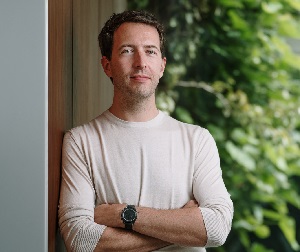Building a thriving borderless workforce in a globalised world

The landscape of work is rapidly evolving, propelled by the rise of remote work and a globalised talent pool. This shift demands a new approach to HR, one that fosters collaboration, transparency, and wellbeing across borders.
Imagine a world where finding the perfect job is not limited by geography, and organisations can access a pool of top talent regardless of their location. This is the vision behind Job van der Voort, CEO and Co-Founder of Remote.
“The future of work has no borders,” van der Voort declared. A tug-of-war between remote and in-office work models persists, but organisations are increasingly embracing a distributed work culture driven by the need for the best global talent. Moreover, the 2023 Remote Workforce Report found that 42% of Gen Z in Singapore, India, Australia and New Zealand would consider leaving their current roles for a remote work opportunity.
However, with the surge in demand for fully remote roles, the competition is fierce. Van der Voort told HRM Asia, “Fully remote roles are in high demand, receiving thousands of applications per posting. On top of that, the job listings themselves may not be fully transparent or accurate. A role may be marketed as remote even though it requires candidates to be used in a specific city or country, for instance.”
“On the flip side, organisations that do want to tap into talent, especially outside their headquartered country and around the world, find it difficult not only to manage the logistics of the hiring and onboarding but also to attract the right applicants due to limitations on traditional job platforms.”
Remote Talent emerges as a platform tailored to the needs of the evolving workforce. The job marketplace addresses the limitations of traditional job boards by offering features that provide clarity on the level of remoteness in job listings. Jobseekers can filter roles based on preferred time zones, view salaries in any currency, assess travel obligations and identify the true remote nature of each position. This empowers them to find opportunities that align with their aspirations and lifestyle, regardless of location.
But the benefits extend beyond the individual. Employers seeking top talent worldwide can now access a pool previously inaccessible due to geographical constraints. “We’ve also made it easier for employers to find the best fit for their open roles without being restricted by geographical borders. For roles that are remote and hybrid, employers can transparently specify their time zone expectations, as well as on-site and travel requirements,” he said.

“The job search process is not just about finding an open role – it’s also about establishing a trusted relationship between the jobseeker and the potential employer.” – Job van der Voort, CEO and Co-Founder of Remote
Building a strong organisational culture is critical for any organisation, but it takes a new dimension in a remote setting. Remote Talent understands this and facilitates trust and transparency from the very beginning, as van der Voort elaborated, “The job search process is not just about finding an open role – it’s also about establishing a trusted relationship between the jobseeker and the potential employer. Remote Talent contributes to shaping a strong organisational culture by helping to establish trust and transparency from the start of the employee lifecycle.”
This commitment to transparency extends beyond recruitment. Remote Talent offers a suite of global HR services, ensuring smooth onboarding, payroll management, and benefits administration for international employees. This, in turn, enables organisations to focus on building a positive remote work culture.
Van der Voort said, “When an employer puts the effort to enable a trustworthy, transparent, and seamless global hiring process, it signals to top-tier international talent that this is an organisation that has their best interest at heart and will be more likely to provide a positive remote work environment in the long-term.”
Leading from anywhere
Managing a remote team requires a unique approach. With over 1,200 team members across six continents, Remote practices what it preaches when it comes to managing a globally distributed workforce. Van der Voort shared insights into the non-traditional approach Remote takes to working models, emphasising the importance of an asynchronous working model.
The distributed workforce, spread across different time zones, necessitates flexibility in working hours, van der Voort added. Tools like Slack and Notion facilitate shared communication channels, enabling information access on individual schedules. He further cited video messages like Loom reduce the dependency on real-time meetings, fostering open communication and collaboration.
READ MORE: Remote’s Global HR Platform streamlines international workforces
Beyond the logistical challenges, van der Voort underscored the importance of comprehensive and impactful benefits for remote employees. Remote goes beyond the basics, providing co-working allowances for those who prefer a workspace outside their homes and in-person meet-up budgets to facilitate real-life connections. The emphasis is on recognising and catering to the needs of a remote workforce, from providing essential equipment for home offices to offering benefits tailored to individual countries.
“To build a successful remote and globally distributed workforce, employers must remember that remote working is not just a temporary add-on benefit. It requires an intentional approach to the working model and day-to-day culture of the organisation to ensure employee engagement, productivity, and overall satisfaction,” he concluded.



